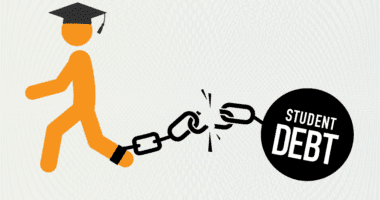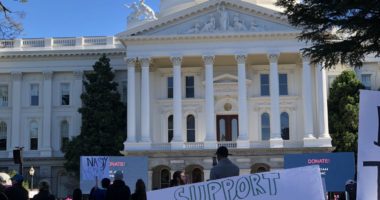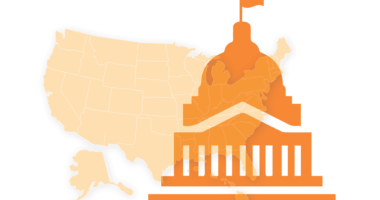Statement from Coalition on Rules to Protect Students and Taxpayers from Student Loan Fraud and Misconduct
August 1, 2016
The Honorable John B. King Jr. Secretary of Education
U.S. Department of Education
400 Maryland Ave, SW
Washington, DC 20202
Re: Docket ID ED-2015-OPE-0103
Dear Secretary King:
As organizations and advocates working on behalf of students, consumers, veterans, service members, faculty and staff, civil rights, and college access, we thank you for proposing new rules to protect students and taxpayers from fraud, deception and other misconduct by unscrupulous colleges. We appreciate this opportunity to comment on the proposed regulations, which create a process for defrauded student loan borrowers to receive the loan relief they are entitled to under the Higher Education Act, and strengthen current accountability provisions to protect taxpayers and students from school fraud and sudden school closures. We applaud the Department in particular for proposing: a process for providing debt relief without requiring individual applications where there is sufficient evidence that a group of students were defrauded; warnings for students of government and accreditor concerns about their school; increased information and access to closed school loan discharges; and measures to stop schools from shielding themselves from accountability through pre-dispute arbitration clauses and class action waivers.
At the same time, the proposed rules need to be strengthened because as written they also roll back eligibility for student loan relief in some cases and make it likely that many defrauded borrowers will get little or no relief. In addition, as drafted, they would allow unscrupulous institutions to continue to use pre-dispute arbitration agreements and ban class action lawsuits for important claims, two of the tactics that Corinthian Colleges used to shield itself from liability. Moreover, a loophole in portions of the rule on class-action claims and pre-dispute arbitration agreements may leave millions of students, including many veterans, completely unprotected. We do not believe this is what the Department intended. Below we discuss these and other issues and how they should be addressed in the final rule.
While many of our organizations will also be submitting more detailed comments, we collectively urge you to improve the draft proposal in the following ways:
1. Presume full loan relief for defrauded borrowers
2. Ensure loan relief is automatic when there is sufficient evidence of school wrongdoing
3. Make the federal standard for relief a floor, not a ceiling that eliminates current borrower eligibility for relief
4. Ensure unscrupulous schools cannot prevent students from holding schools accountable in the courts
5. Improve the warnings for students regarding concerns about their school
6. Do not impose new time limits on borrower relief
7. Ensure the independence of decision makers involved in borrower relief determinations
1. Presume full loan relief for defrauded borrowers. Under the proposed regulation, after the Department has determined that a student has been defrauded, there would be a separate highly subjective, time-consuming, and costly process for determining how much relief, if any, the borrower should receive. For instance, the Department suggests that borrowers may receive the difference between what the student paid and what the Department thinks a student would have been willing to pay if she had not been misled by the school. For groups of students who the Secretary has determined were defrauded, relief may also be reduced based on the potential cost to taxpayers. The proposed rules even say each Department official could use any “method determined by the official” to decide the amount of relief defrauded borrowers receive. This is inappropriate, will lead to inconsistent treatment of borrowers, and unnecessarily delay borrower relief.
At a minimum, the Department should revise the proposal to presume full relief for approved defense to repayment (“borrower defense”) claims except in instances where the Secretary can specify reasons for providing less, rather than placing the burden on the borrower to justify full relief. For example, in cases where only the cost but not the quality of the education provided is at issue, partial relief may be justified. However, in no circumstances should relief be reduced based on potential fiscal impact. Taxpayers can and should be protected, but not by denying harmed students loan relief. Effective implementation of the borrower defense statute will, in the long term, save taxpayers money by deterring and creating stronger accountability for fraudulent behavior.
2. Ensure loan relief is automatic when there is sufficient evidence of school wrongdoing. We commend the Department for proposing a process to automatically discharge loans for groups of defrauded borrowers without requiring unnecessary individual applications and costly, time- consuming individual reviews. The final rule needs to ensure that this authority will be exercised when warranted. Earlier this year, the Department proposed a process for state attorneys general and nonprofit legal aid organizations that represent students to publicly petition the Department to provide automatic loan discharges for groups of students. It is essential that this process be included in the final rule. The final rule should also provide further guidance to encourage the Department to use its authority to automatically discharge loans.
3. Make the federal standard for relief a floor, not a ceiling that eliminates current borrower eligibility for relief. The Department’s proposal largely eliminates relief available to current borrowers based on state law violations. Borrowers with loans disbursed after July 1, 2017, would no longer be eligible for relief based on many violations of state laws that protect consumers from unfair, deceptive, or abusive conduct. For example, under the proposed rules, if a college uses high pressure sales tactics, hires unqualified teachers, slashes services, unreasonably limits course enrollments to save costs, withholds reasonable accommodations from students with disabilities, charges exorbitant fees, or arbitrarily withholds degrees, students would effectively no longer be eligible for borrower defense loan discharges based on violations of state law that prohibit these types of conduct. The Department’s proposal should set a federal floor for all borrowers, not a ceiling that rolls back current eligibility for relief based on violations of state consumer protection and other laws. At a minimum, the final regulation should provide a process for state attorneys general to petition the Secretary to grant relief based on state law violations.
4. Ensure unscrupulous schools cannot prevent students from holding schools accountable in the courts. We applaud the Department for proposing rules intended to ensure that students can hold schools accountable for wrongdoing in the courts, rather than being forced to pursue any claims in secret arbitration proceedings that usually favor the school. Unfortunately, the proposed rules would continue to allow institutions to use pre-dispute arbitration agreements and to ban class action lawsuits for important claims. For example, schools could continue to use pre-dispute arbitration agreements as long as they are technically not a condition of enrollment. Unscrupulous schools would undoubtedly mislead students into believing these agreements were required, despite fine print to the contrary. They could also force students to arbitrate claims that did not constitute “borrower defense” claims under the new regulations.
In addition, a loophole in coverage could leave millions of students completely unprotected because they did not take out a federal loan in a given year. In 2011-12 alone, more than one million students at for-profit colleges did not take out a federal student loan, including many veterans.1 That’s nearly one third (30%) of the students enrolled in for-profit colleges that year who might not be protected by the proposed regulations on pre-dispute arbitration agreements and class action waivers. If the proposed regulations had been in effect in 2011-12, even at Corinthian Colleges, nearly one out of four Corinthian students (23% or 44,000 students) might not have been protected because they did not take out a federal student loan that year.2 To fully protect students and taxpayers, the final rule should bar all colleges participating in the Direct Loan program from using or enforcing with any of their students a pre-dispute arbitration agreement or a class-action waiver that shields the schools from accountability related to federal loans or the school’s marketing or provision of educational services, regardless of whether those services are financed by a loan.
5. Improve the warnings for students regarding concerns about their school. We strongly support the Department’s proposal to ensure students are not the last to learn about government or accreditor concerns about their school. However, unscrupulous institutions will likely do everything they can to undermine the proposed warnings and disclosures, including by burying and disguising them. To better protect students, we recommend that the Department prescribe the wording, format and labeling of warnings and disclosures, and require their inclusion at first contact with students and in the school’s promotional materials and on the school’s web site.
We also commend the Department for proposing to strengthen current accountability provisions to protect students and taxpayers from the costs of school fraud and sudden school closures. The proposed rules identify triggering events associated with increased taxpayer risk that would
require schools to put up funds or additional funds. By identifying triggering events in advance, schools will know which events to avoid, and students and taxpayers will be better protected from the costs of loan discharges and sudden school failures.
6. Do not impose new time limits on borrower relief. The proposed regulation creates a new six-year time limit on the ability of borrowers to recover amounts paid on loans taken out due to school fraud and breach of contract. These time limits begin at ambiguous and varying times depending on the type of school misconduct, and will limit relief for borrowers who may not know that such a time limit exists or applies to them. Moreover, the time limits would perversely treat students who repay their loans less favorably than those who do not. We urge the Department to not impose time limits on borrowers when there are none on the government’s ability to collect student loan debt.
7. Ensure the independence of decision makers involved in borrower relief determinations. The Department proposes to have independent department officials or hearing officials decide claims, represent borrowers, and make other critical decisions that determine the fate of a claim. However, to avoid conflicts of interest, Department staff in offices involved in making policy, budgeting, or assessing school compliance with Title IV program policies and regulations should not be involved in reviewing or adjudicating borrower defense claims. Delegating some functions to the Office of Hearings and Appeals, particularly the function of a hearing official, would be one way that the Department could avoid conflicts of interest.
Thank you again for your work to help defrauded borrowers and protect taxpayers. We believe these changes are essential to protect both students and taxpayers and prevent future fraud. It is imperative that the rule be finalized by November 1, 2016, and go into effect no later than July 1, 2017. Students and taxpayers urgently need greater relief and protection, and we look forward to continue working with the Department on this important issue.
Sincerely,
AFSCME
Air Force Sergeants Association (AFSA)
American Association of University Professors (AAUP)
American Association of University Women (AAUW)
American Federation of Labor-Congress of Industrial Organizations (AFL-CIO)
Americans for Financial Reform
Association of the United States Navy (AUSN)
Center for Public Interest Law of the University of San Diego
Center for Responsible Lending
Children’s Advocacy Institute of the University of San Diego
Consumer Action
Consumer Federation of America
Consumer Federation of California
Consumers Union
Demos
East Bay Community Law Center
The Education Trust
Empire Justice Center
Equal Justice Works
Faculty Forward Network
Generation Progress
Higher Ed, Not Debt
Housing and Economic Rights Advocates
The Institute for College Access & Success
The Leadership Conference on Civil and Human Rights
League of United Latin American Citizens (LULAC)
Legal Services NYC
Maryland Consumer Rights Coalition
NAACP
National Association for College Admission Counseling
National Association of Consumer Advocates
National Center for Law and Economic Justice
National Consumer Law Center (on behalf of its low-income clients)
National Consumers League
National Council of La Raza (NCLR)
National Education Association (NEA)
National Women Veterans Association of America
New York Legal Assistance Group (NYLAG)
NYPIRG
Project on Predatory Student Lending of the Legal Services Center of Harvard Law School
Public Citizen
Public Counsel
Public Good Law Center
Public Law Center
Service Employees International Union (SEIU)
Student Debt Crisis
Student Veterans of America
U.S. Public Interest Research Group (U.S. PIRG)
United States Student Association (USSA)
Veterans Education Success
Veterans for Common Sense
Veterans’ Student Loan Relief Fund
VetJobs
VetsFirst, a program of United Spinal Association
Woodstock Institute
Young Invincibles







